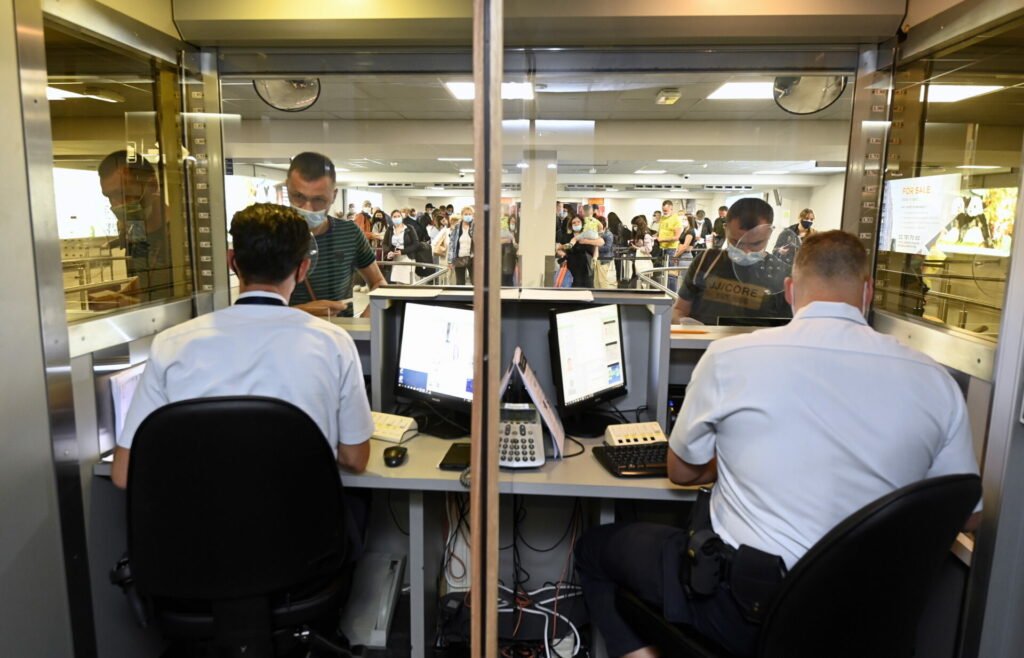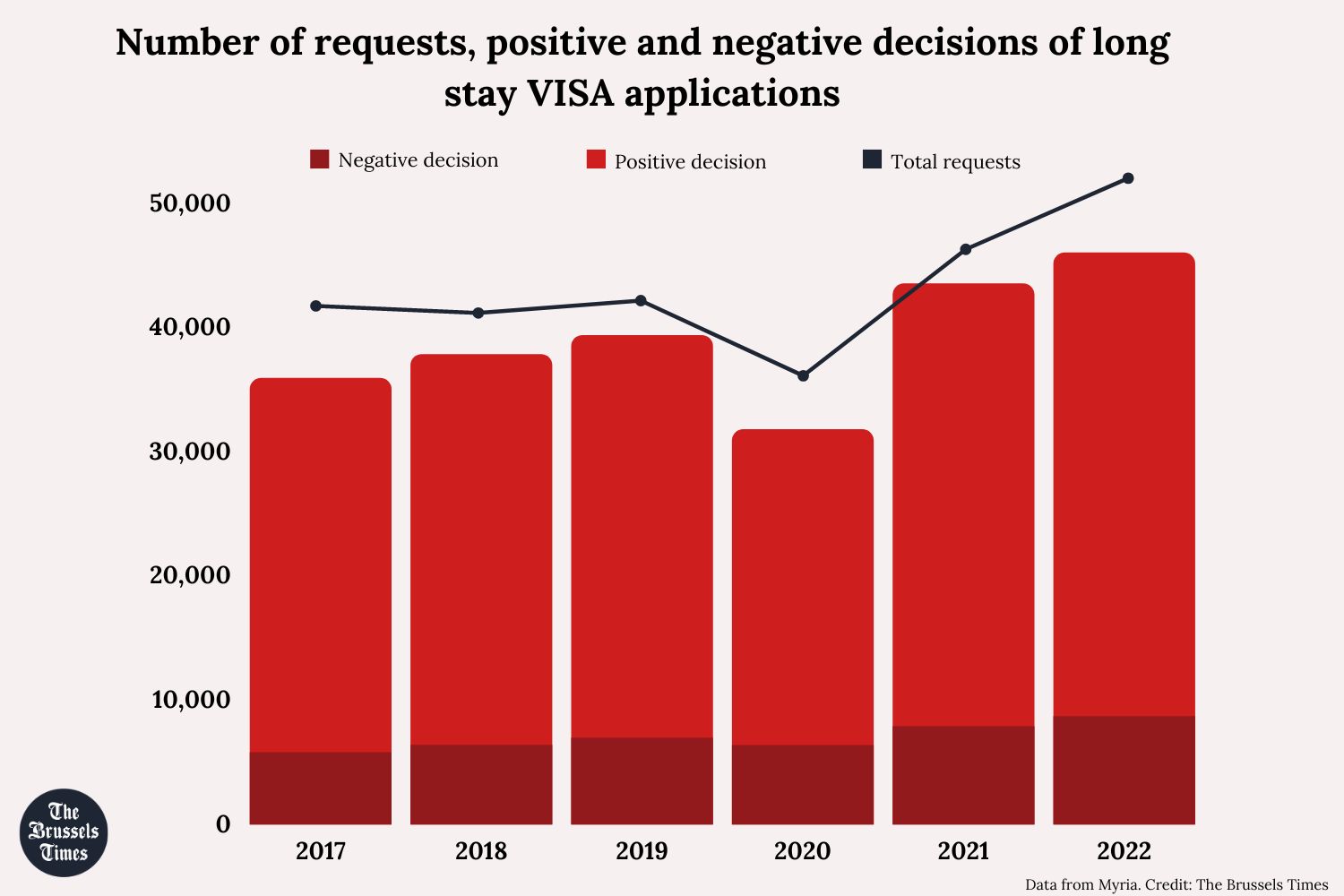The number of long-stay visas for economic reasons has been sharply rising in recent years, surpassing levels seen before the pandemic, while the number of short-term visas has not yet rebounded.
In most cases, non-EU citizens looking to enter Belgium need to have either a short-stay visa (C visa) for a period of up to 90 days or a long-stay visa (D visa) for a period of more than 90 days.
While travel restrictions resulted in both types dropping during the pandemic-driven year of 2020, the number of D visas has rapidly rebounded, Myria, the Federal Migration Centre, stated on Wednesday in its annual report.
"The number of applications for long-stay visas has been increasing since 2020, even reaching a level higher than before the start of the health crisis," the report read.
More economic migration
A total of 53,946 applications for long-stay visas were made last year, up by 60% compared to 2020. More than 37,000 applications (81%) received a "positive decision," meaning the visas were granted, while entry was denied in 8,720 cases (19%).
Excluding 2020, the numbers of long-stay visas granted to Moroccans, Turks and Palestinians were generally on the rise in recent years. The number of visas issued to Syrians and Afghans had risen in recent years but fell in 2022.
Most long-stay visa applications were given for family migration (43%), followed by student migration.
The category that accounted for the third-largest number of long-stay visas, economic migration, has shown a "clear upward trend since 2021."
The number of such visas granted to Turks, Moroccans and Tunisians almost doubled between 2021 and 2022, the report showed.
Blocking humanitarian migration
Just 1% of visa requests for economic migration were refused, compared to 24% for student migration and 22% for family migration.
The largest number of visa refusals, however, were in cases of "humanitarian migration", given to resettled refugees but also to Afghans who arrived after evacuation operations following the Taliban regaining power. Almost half of the humanitarian long-stay visas were granted to Afghans last year.
Overall, almost 45% of such applications for long-stay visas were refused. The same is true for C visas for humanitarian or medical reasons, of which 43% were refused.
While the total number of short-stay visas rose in 2022 compared to 2020 and 2021 to around 177,500, it remains about 20-30% below pre-pandemic levels. More than a quarter of the applications were refused.
Last year, fewer C visas were granted for tourism (-45%), for students and economic reasons (-34%), while those granted for family reasons are nearing levels recorded before 2020.


